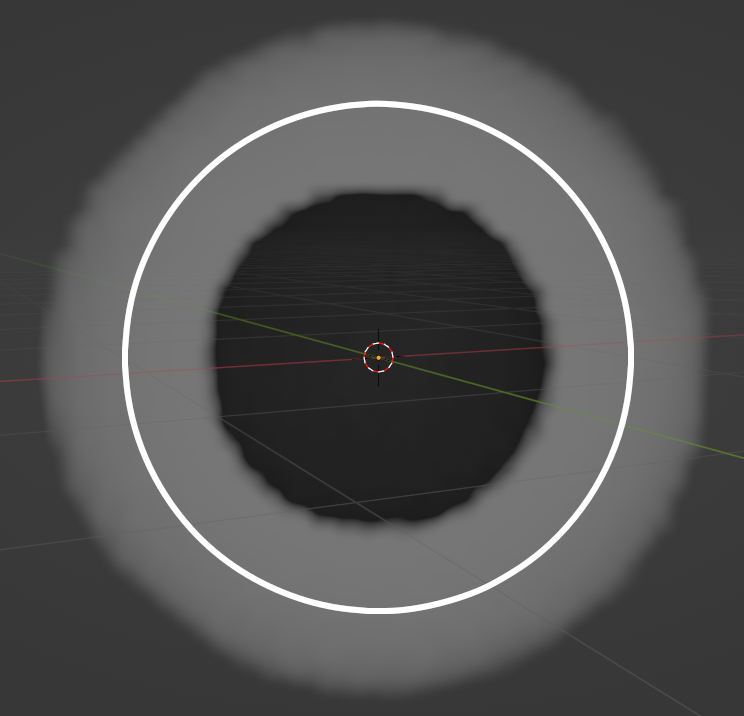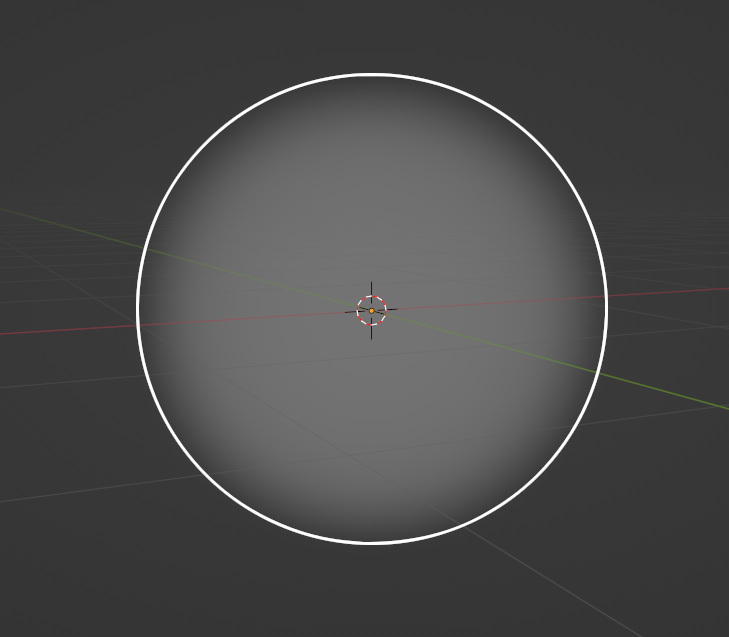Mesh To Volume fixes / refactoring #106346
No reviewers
Labels
No Label
Interest
Alembic
Interest
Animation & Rigging
Interest
Asset Browser
Interest
Asset Browser Project Overview
Interest
Audio
Interest
Automated Testing
Interest
Blender Asset Bundle
Interest
BlendFile
Interest
Collada
Interest
Compatibility
Interest
Compositing
Interest
Core
Interest
Cycles
Interest
Dependency Graph
Interest
Development Management
Interest
EEVEE
Interest
EEVEE & Viewport
Interest
Freestyle
Interest
Geometry Nodes
Interest
Grease Pencil
Interest
ID Management
Interest
Images & Movies
Interest
Import Export
Interest
Line Art
Interest
Masking
Interest
Metal
Interest
Modeling
Interest
Modifiers
Interest
Motion Tracking
Interest
Nodes & Physics
Interest
OpenGL
Interest
Overlay
Interest
Overrides
Interest
Performance
Interest
Physics
Interest
Pipeline, Assets & IO
Interest
Platforms, Builds & Tests
Interest
Python API
Interest
Render & Cycles
Interest
Render Pipeline
Interest
Sculpt, Paint & Texture
Interest
Text Editor
Interest
Translations
Interest
Triaging
Interest
Undo
Interest
USD
Interest
User Interface
Interest
UV Editing
Interest
VFX & Video
Interest
Video Sequencer
Interest
Virtual Reality
Interest
Vulkan
Interest
Wayland
Interest
Workbench
Interest: X11
Legacy
Blender 2.8 Project
Legacy
Milestone 1: Basic, Local Asset Browser
Legacy
OpenGL Error
Meta
Good First Issue
Meta
Papercut
Meta
Retrospective
Meta
Security
Module
Animation & Rigging
Module
Core
Module
Development Management
Module
EEVEE & Viewport
Module
Grease Pencil
Module
Modeling
Module
Nodes & Physics
Module
Pipeline, Assets & IO
Module
Platforms, Builds & Tests
Module
Python API
Module
Render & Cycles
Module
Sculpt, Paint & Texture
Module
Triaging
Module
User Interface
Module
VFX & Video
Platform
FreeBSD
Platform
Linux
Platform
macOS
Platform
Windows
Priority
High
Priority
Low
Priority
Normal
Priority
Unbreak Now!
Status
Archived
Status
Confirmed
Status
Duplicate
Status
Needs Info from Developers
Status
Needs Information from User
Status
Needs Triage
Status
Resolved
Type
Bug
Type
Design
Type
Known Issue
Type
Patch
Type
Report
Type
To Do
No Milestone
No project
No Assignees
4 Participants
Notifications
Due Date
No due date set.
Dependencies
No dependencies set.
Reference: blender/blender#106346
Loading…
Reference in New Issue
No description provided.
Delete Branch "erik85/blender:mesh-to-volume-update"
Deleting a branch is permanent. Although the deleted branch may continue to exist for a short time before it actually gets removed, it CANNOT be undone in most cases. Continue?
This patch fixes a few problems with the current implementation of
Mesh to Volume.Main Problem
Currently
Mesh to Volumecreates a volume usingopenvdb::tools::meshToVolumewhich is then filled with the specified density and the class set to Fog Volume.This is wrong because
meshToVolumecreates a signed distance field by default that then needs to be converted to a Fog Volume withopenvdb::tools::sdfToFogVolumeto get a proper Fog volume. Here is the description of what that function does:Here's an image of how the current behavior is, visualized with a Volume to Mesh node to the left and the volume to the right.
Here is that same file opened with this patch.
The most noticable difference is the gradient looks better and is adjustable using the interior band width.
Scrubbing the Volume to Mesh
Thresholdbetween 0 and 1 shows the size of the gradient.This means with this change old files will no longer look the same. I don't see any way around that as the options for external band width and not filling the volume is removed (they don't make any sense for a fog volume).
Another improvement is that now interior band width can be specified using the scene unit or voxels.
An important point here is that in the future it will make more sense to use the (now experimental) node
Mesh to SDF Volumeif the volume will be converted back to a mesh. This skips the internal conversion from an SDF to a Fog-volume grid and gives a better result.I can see
Mesh to Volumeeventually being renamed toMesh to Fog Volumeto make it more clear what it's doing.It would help if you could show in which way existing files can break with this change.
Well now the fog volume is basically a signed distance field grid that is filled from the exterior width to the interior width with constant density.
With this change it would become a fog volume with 0 values on the outside of the mesh and a gradient from 0 to 1 on the inside (gradient width is the interior band width).
Before (exterior and interior width the same value):

After (same interior width as above):

Maybe one way to solve it would be to keep the current
Mesh To Volumenode and modifier, but deprecate it and add a newMesh to Fog Volume-node and modifier.I think this is generally a good improvement and probably does not need versioning. The main use case of converting meshes to volumes and back only seems to improve.
I'm not fully convinced the new behavior is correct yet.
sdfToFogVolumetakes the interior and exterior bandwidth into account. Effectively that means that currently the density is 0 at the sphere surface and then increases linearly to 1 in the sphere center. However, I'd expect most of the sphere to have the same density. The main issue here is thatfill_volumeis currently implemented by increasing the interior bandwidth, which might not be necessary anymore.When
fill_volumeis off, I'd expect to see a sphere in a sphere after converting the volume back to a mesh. Inmainthat works, in this patch not yet.Does it really take the exterior into account? If you read the comment from the OpenVDB code in the PR description I interpret that as all of the exterior will become inactive with value 0 so it shouldn't matter how wide it is.
You're right,
Fill Interioris probably not needed anymore, and to get most of the sphere the same density you would just need to decrease the interior band width near 0. There needs to be a gradient though if it is to be converted back to Mesh to get the mesh smooth (but in the case of needing a mesh maybe using SDF is almost always better?).I don't think that's going to work because the fog volume will never have the gradient back to 0 in the middle as far as I understand.
WIP: Mesh To Volume fixes / refactoringto Mesh To Volume fixes / refactoringFrom the discussion I remember in chat, I think this change makes sense. But I think it would be easier to accept if the PR description was very clear about what the "breaking" changes are on a user level.
The description also describes the problem with the current code fairly well, but it has less detail about how it's changed to improve it.
@ -98,1 +86,3 @@return voxel_size;if (settings.use_world_space_units) {return (diagonal + settings.exterior_band_width * 2.0f) / (float)settings.voxels;(float)value->float(value)Functional style casts mentioned in the style guide
@ -10162,0 +10164,4 @@{MESH_TO_VOLUME_UNIT_LOCAL,"LOCAL",0,"Local space",Local space->Local SpaceTitle case for UI labels
@ -10185,12 +10200,27 @@ static void def_geo_mesh_to_sdf_volume(StructRNA *srna){0, NULL, 0, NULL, NULL},};static EnumPropertyItem units_items[] = {Might as well share this to avoid defining it twice?
@ -154,0 +147,4 @@/* exterior_band_width */ mvmd->exterior_band_width,/* density */ 0.0f,/* simplify */ volume_simplify,/* fill_volume */ (bool)(mvmd->fill_volume),Functional style cast here
@ -104,2 +113,2 @@resolution.settings.voxel_size = params.get_input<float>("Voxel Size");if (resolution.settings.voxel_size <= 0.0f) {else {int voxels = params.get_input<int>("Half-Band Voxels");int->const intThis is not very critical, but try to use
extract_inputinstead ofget_inputto avoid copying values.I don't think it works well in this case where it could be read multiple times if there are multiple objects in the Geometry input.
Generally this combination of cleanup and functional changes, and the new units option is hard for me to follow. I get the sense that all of the changes are reasonable, but it's hard to verify that by reading the diff right now.
@ -29,0 +30,4 @@bool fill_volume;bool use_world_space_units;bool convert_to_fog;bool unsigned_distance;Looks like
unsigned_distanceis unused@ -123,3 +157,2 @@const float voxel_size = geometry::volume_compute_voxel_size(params.depsgraph(), bounds_fn, resolution, half_band_width, mesh_to_volume_space_transform);auto mode = (MeshToVolumeModifierResolutionMode)storage.resolution_mode;const auto mode = MeshToVolumeModifierResolutionMode(storage.resolution_mode);@ -47,3 +40,1 @@b.add_input<decl::Bool>(N_("Fill Volume")).default_value(true).description(N_("Initialize the density grid in every cell inside the enclosed volume"));.description(N_("Width of the gradient inside of the mesh"));These two should have
.make_available()implementations for link drag search I think.@ -98,0 +96,4 @@return nullptr;}auto unit_mode = (MeshToVolumeModifierBandUnits)storage.band_units;const auto unit_mode = MeshToVolumeModifierBandUnits(storage.band_units);I'm also not totally convinced by combining
sdf_volume_grid_add_from_meshandfog_volume_grid_add_from_meshinto the same function and differentiating their behavior with a "settings" struct. That basically creates one function with very different behavior based on its arguments. It's usually better to have different functions instead, and share their internal logic by splitting parts of their internals into separate functions, while keeping the API separate.Maybe I'm missing some of your reasoning though? Either way, it still seems unrelated to the change of updating the mesh to fog volumes input options, which seems like the main focus of this patch.
The main focus of this patch was to use
openvdb::tools::sdfToFogVolumeto create the fog volume and while doing that I realized the functions would look pretty much identical except for the call to sdfToFogVolume in the end. That's why I created the settings struct. You could be right that there are other better ways to solve it but at that point it seemed like the best I could come up with. This is similar to the Maya and Houdini node implementations in OpenVDB's repo.I do think the patch is doing too much then. A change should usually just do one thing. Here we're combining this change, a cleanup/de-duplication change, and another new feature.
Pull request closed